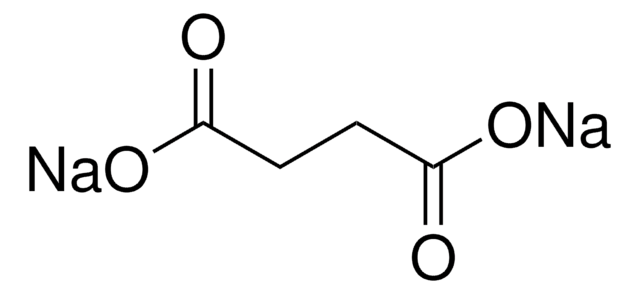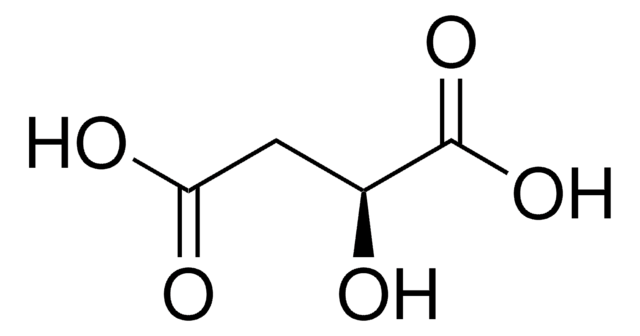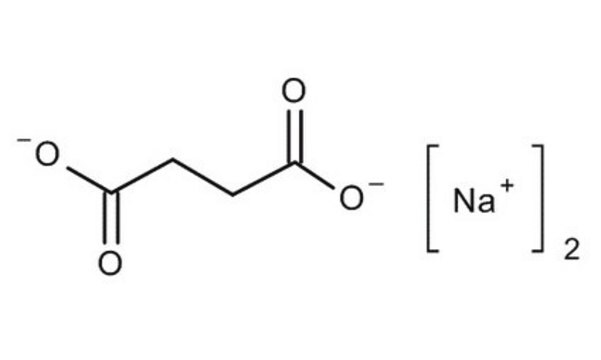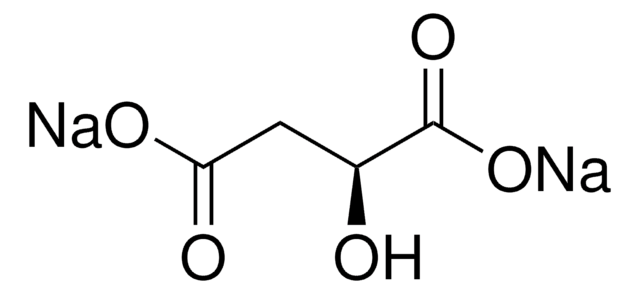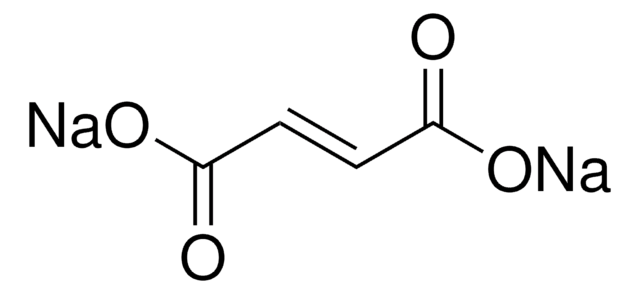S2378
Sodium succinate dibasic hexahydrate
ReagentPlus®, ≥99%
Synonym(s):
Butanedioic acid disodium salt, Succinic acid disodium salt
About This Item
Recommended Products
Quality Level
product line
ReagentPlus®
Assay
≥99%
solubility
H2O: 100 mg/mL, clear, colorless
SMILES string
O.O.O.O.O.O.[Na+].[Na+].[O-]C(=O)CCC([O-])=O
InChI
1S/C4H6O4.2Na.6H2O/c5-3(6)1-2-4(7)8;;;;;;;;/h1-2H2,(H,5,6)(H,7,8);;;6*1H2/q;2*+1;;;;;;/p-2
InChI key
ZBTUYCUNQBRXOR-UHFFFAOYSA-L
Looking for similar products? Visit Product Comparison Guide
Related Categories
Application
Legal Information
Not finding the right product?
Try our Product Selector Tool.
Storage Class Code
11 - Combustible Solids
WGK
WGK 1
Flash Point(F)
Not applicable
Flash Point(C)
Not applicable
Personal Protective Equipment
Choose from one of the most recent versions:
Already Own This Product?
Find documentation for the products that you have recently purchased in the Document Library.
Customers Also Viewed
Articles
Learn about the four membrane-bound protein complexes that make up the electron transport chain metabolic pathway supplying energy as ATP for cellular respiration.
Get to know the Tricarboxylic acid (TCA) cycle to better inform your research in biochemistry, metabolomics, or related fields concerned with this metabolic pathway and its enzymes, by-products, or intermediates.
Our team of scientists has experience in all areas of research including Life Science, Material Science, Chemical Synthesis, Chromatography, Analytical and many others.
Contact Technical Service
